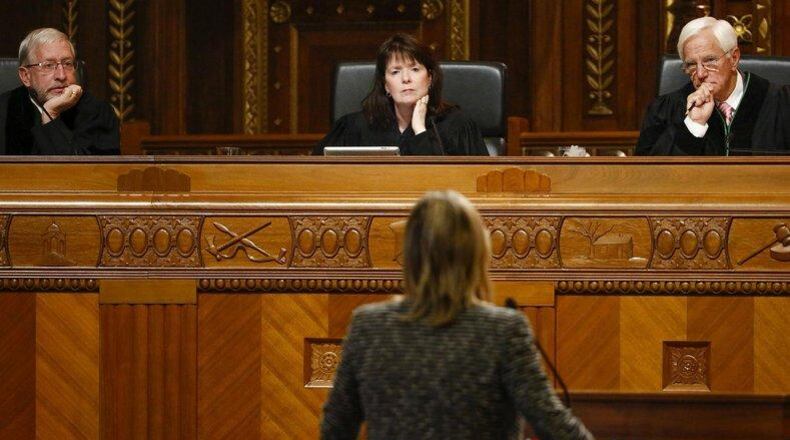Some 456,000 customers are affected, parties to the lawsuit said.
RELATED: DP&L case at Supreme Court: What's really going on
Those appealing to the Supreme Court wanted relief because, they argued, DP&L kept $294 million that it already collected, even though the Supreme Court had determined the charges to be unlawful.
Four justices disagreed, ruling: "We cannot order effective relief and the appeal is moot."
Added the majority: “Our task is not to set rates; it is only to (ensure) that the rates are not unlawful or unreasonable, and that the rate-making process itself is lawfully carried out.”
“Today’s 4-3 decision by the court is disappointing for nearly half a million Dayton-area families and businesses,” said J.P. Blackwood, spokesman for the Office of the Ohio Consumers Counsel. “They have been unable to obtain protection at any level of government from paying hundreds of millions of dollars to subsidize their monopoly utility, DP&L.
MORE: Manufacturing Day turns students' heads in Dayton and beyond
“DP&L’s subsidy charges have been allowed where poverty is at 35 percent in Dayton and food insecurity is at 18 percent in Montgomery County,” Blackwood added.
“We find today’s outcome to be an unfortunate decision that is unfair to customers,” said Ryan Augsberger, vice president and managing director of public policy services for the Ohio Manufacturers Association. “(Thursday’s) ruling underscores the need for regulatory reform to protect customers from the proliferation of utility riders.”
At issue had been the Public Utility Commission of Ohio’s (PUCO) 2016 decision to allow DP&L to withdraw and terminate an electric-security plan — an overall plan for operating as an electric utility.
The legal saga goes back to June 2016, when the court overturned a PUCO decision tied to DP&L, a decision that had allowed DP&L to charge customers extra so DP&L could remain a “stable” operating entity.
About a month after that first Supreme Court ruling, DP&L filed with the PUCO to withdraw its application for the plan that included those charges.
In a February 2017 appeal to the state Supreme Court, the OCC said the PUCO violated state law when it allowed DP&L to withdraw its ESP or “electric security plan” the previous July. The unlawful charges had been in effect for nearly three years, the office argued.
The OCC said at the time: “The PUCO unreasonably and unlawfully allowed a utility to withdraw its electric security plan after 32 months of charging customers.”
The OCC wanted the $294 million returned to customers.
In dissent, Justice Terrence O’Donnell said the decision sets a “poor” precedent.
“It not only fails to enforce one of its lawful orders, but it also telegraphs to other utilities that if this court reverses a matter in connection with an application approved by the commission (PUCO) involving collection of unlawful charges, on remand, they can simply follow the procedure here, apply to withdraw the application, and thereby render review by this court wholly meaningless,” O’Donnell wrote.
A message seeking comment was sent to a DP&L representative.
About the Author

